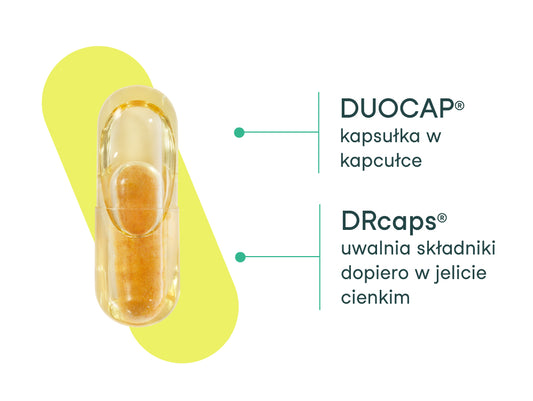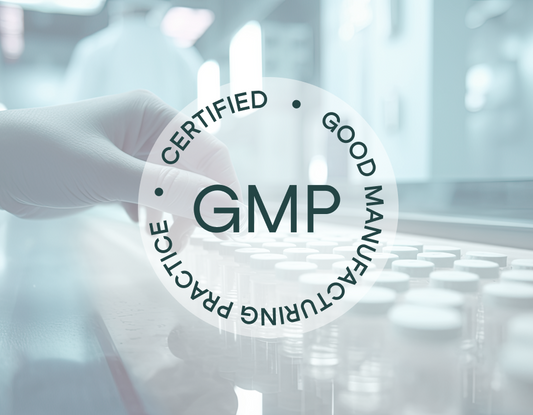
If you are wondering whether to take folic acid before pregnancy, in what dose and for how long, be sure to read this article. We explain all the nuances of folic acid supplementation before pregnancy.
Folic acid is the ingredient most often recommended by doctors to take when planning a pregnancy. It is critically important for the proper development of the fetus in the first weeks. Whether it will have a beneficial effect depends on whether it is well absorbed . And this can be a problem because many supplements and medications contain a form of folic acid that most women are unable to absorb . But let's talk about everything in order.
Should you take folic acid before pregnancy?
Folates, i.e. salts of folic acid, are a very important element of every person's diet. We are unable to produce them ourselves, so the body stores folic acid obtained from food and supplements. If it is missing from our diet, folate supplies will be completely exhausted within 4 months. 1 .
At the same time, scientific research shows that the content of folic acid in vegetables (e.g. broccoli) has more than doubled over the last 40 years. 2 . This means that even a healthy diet rich in vegetables does not provide us with sufficient amounts of folate. And folic acid before pregnancy is especially important, both for the future mother and her baby . Deficiency of this nutrient increases the risk of fetal defects (neural tube, heart, urinary system) and the risk of miscarriages and thrombosis in the mother. 3 .
In turn, women who supplement folic acid when planning a pregnancy reduce the risk of these problems. In the case of fetal neural tube defects and related pregnancy complications, folic acid supplementation before pregnancy helps reduce this risk by as much as 70% 4 .
Therefore, folic acid is a mandatory recommendation of doctors for those planning a pregnancy and is included in the list of recommendations of the Polish Society of Gynecologists and Obstetricians . And considering that as many as 60% of pregnancies are unplanned 5 , folic acid supplementation is also a universal preventive measure for all women of reproductive age.
What folic acid should you take before pregnancy?
To benefit from all the benefits of folic acid, it must be properly absorbed in our body. Scientific research indicates that up to 60% of people may have a genetic mutation 6 that makes it difficult to absorb regular folic acid found in many popular dietary supplements and medications. To use this acid, the body must carry out several transformation stages to finally obtain the active form.
Unabsorbed folic acid will not only help us reduce the risk of fetal defects and pregnancy complications, but may also be dangerous to our health. You can read more about how regular folic acid can be harmful in this article .
If we want to bypass the complicated process of folic acid transformation and ensure that it is completely absorbed , it is worth choosing folates in an already active form . That is, in the form of 5-methyltetrahydrofolate. The latest generation of this compound available on the market is Quatrefolic.
Folic acid before pregnancy – what dose?
Polish experts from the Primary Prevention Team for Neural Tube Defects recommend folic acid supplementation before pregnancy at a dose of 400 mcg 7 . This amount of folate taken daily helps reduce the risk of neural tube defects in a child. According to scientists, these defects occur in the first month after conception, when the woman most often does not know that she is pregnant. Failure to provide adequate amounts of folate increases the risk of anencephaly, hydrocephalus, and brain and spinal hernias 8 . That is why folic acid before pregnancy in the appropriate dose is so important. Gynecologist, andrologist and anti-aging medicine doctor. Mariusz Łukaszuk, MD, emphasizes that the dose of 400mcg applies before pregnancy. However, when a woman finds out that she is expecting a child, she will need to increase the amount of folic acid she takes:
“As a gynecologist, I recommend starting taking folic acid at the stage of planning a child . And when pregnancy is confirmed, I suggest increasing the dose of folic acid taken from 400 to 600 µg. I always emphasize that it is worth ensuring that folic acid is well absorbed . So it's best if they are active folates of the latest fourth generation.
How long should you take folic acid before pregnancy?
In this matter, the recommendations of various institutions differ slightly. Yes, the Polish Society of Gynecologists and Obstetricians, in its recommendations for women planning pregnancy, mentions that folic acid supplementation should be started at least 6 weeks before conception 9 . The Institute of Mother and Child mentions at least 4 weeks before getting pregnant 10 . Some foreign scientific societies say 3 months before conception . The purpose of these recommendations is one - to ensure that the mother's body is saturated with this ingredient at the moment of conception. And in this respect, the active form of folic acid is much better, explained the gynecologist and perinatologist, Ph.D., in an interview with Nikalab. Maciej Socha:
“Let's take supplements containing the active form of folic acid . Nothing can replace it. It just has to be well constructed, because it is not squeezed from some vegetable or fruit. Only a properly constructed molecule can work wonders. The active form of folic acid taken even just before the idea of getting pregnant or just after the expected "romantic failure" is certainly a better idea than taking popular supplements with ordinary folic acid.
Read the entire conversation about folic acid with Dr.Med. Maciej Socha can be found at this link .
Does folic acid help get pregnant?
Some women take folic acid to get pregnant faster. However, helping with fertilization is not its purpose or proven property. Taking folic acid before conception is necessary to saturate the future mother's body with this ingredient so that there is no deficiency when she becomes pregnant. Once you get pregnant, folic acid will help you stay pregnant , and not just in the early stages. Folate is needed for the formation of the placenta and its proper blood supply. Folic acid deficiency may lead to fetal death 11 . There are other benefits of supplementing folic acid for those planning a pregnancy. It supports blood formation in the mother's body and prevents anemia, and participates in DNA synthesis and cell division 12 . Folates have a beneficial effect on immunity and help fight inflammation 13,14,15 , support the functioning of the heart 16,17 , support cognitive function 18,19 and help in states of constant fatigue 20 .
However, if you are looking for a way to increase your chances of conception , check out this article for tips.
Bibliography:
- Agata Karowicz-Bilińska, Ewa Nowak-Markwitz, Tomasz Opala and others, "Recommendations of the Polish Gynecological Society regarding the use of vitamins and microelements in women planning pregnancy, pregnant and breastfeeding", Ginekol Pol. 5/2014, 85, 395-399.
- Erisman, Jan Willem. (2021). Nature-based agriculture for an adequate human microbiome. Organic Agriculture. 11. 10.1007/s13165-020-00304-4.
- Agata Karowicz-Bilińska, op.cit.
- LE Martínez-Garza. Editorial. October - December 2016. Twenty-five years of knowledge of the prevention of neural tube defects with folic acid.
- Zimmer M., Sieroszewski P., Oszukowski P. et al., "Recommendations of the Polish Society of Gynecologists and Obstetricians regarding supplementation in pregnant women." Gynecology and Practical Perinatology 2020
- Long S. Goldblatt J., “MTHFR genetic testing: Controversy and clinical implications.” Journal of The Royal Australian College of General Practitioners, April 2016.
- “Primary Prevention Program for Neural Tube Defects”, District Sanitary and Epidemiological Station in Białystok, gov.pl, accessed July 5, 2022.
- Zimmer M., op.cit.
- Agata Karowicz-Bilińska, op.cit.
- “Pregnancy - folic acid”, Institute of Mother and Child, mid.med.pl, accessed July 5, 2022.
- Czeczot H. Folic acid in physiology and pathology. Progress Hig Med Exp. 2008; 62: 405–419.
- Zimmer M., op.cit.
- A Dhur, P Galan, S Hercberg. Prog Food Nutr Sci. 1991;15(1-2):43-60. Folate status and the immune system.
- Catherine J Field et al. J Nutr Biochem. 2006 Jan;17(1):37-44. Dietary folate improves age-related decreases in lymphocyte function.
- Kathleen Mikkelsen and Vasso Apostolopoulos. Victoria University Melbourne. In book: Nutrition and Immunity (pp.103-114). Vitamin B12, Folic Acid, and the Immune System. July 2019.
- Yuan Wang et al. Medicine (Baltimore). 2019 Sep; 98(37): e17095. Published online 2019 Sep 13. The effect of folic acid in patients with cardiovascular disease. A systematic review and meta-analysis.
- Tao Tian et al. Am J Med Sci. 2017 Oct;354(4):379-387. Folic Acid Supplementation for Stroke Prevention in Patients With Cardiovascular Disease.
- Fei Ma et al.. Sci Rep. 2016; 6: 37486. Published online 2016 Nov 23. Folic acid supplementation improves cognitive function by reducing the levels of peripheral inflammatory cytokines in elderly Chinese subjects with MCI.
- E. H. Reynolds. BMJ. 2002 Jun 22; 324(7352): 1512–1515. Folic acid, aging, depression, and dementia.
- In Jacobson et al. Neurology. 1993 Dec;43(12):2645-7. Serum folate and chronic fatigue syndrome.


What makes our capsule stand out?
The nikalab capsule impresses not only with its appearance, but also with its operation. We used two innovative...








